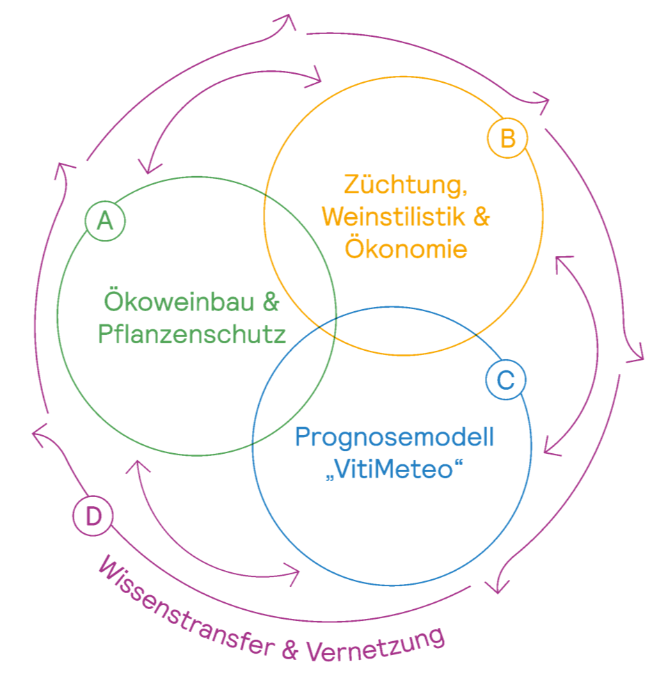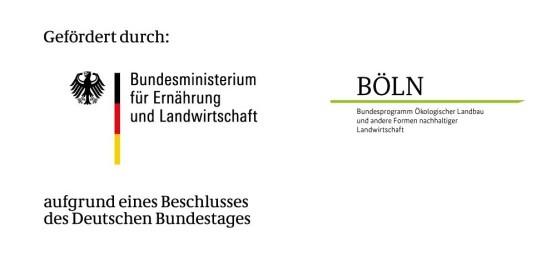Healthy vines in organic viticulture
Healthy vines (Vitis vinifera) in organic viticulture through research, innovation and transfer (VITIFIT)
Since June 2019, a so far unique consortium has been dedicated to the health of vines in organic viticulture. Seven teaching and research institutions are working closely with three practical partners, four organic farming associations and five organic wineries. Special attention is being paid to downy mildew of the vine, which is caused by the oomycete Plasmopara viticola. In organic viticulture, copper-containing plant protection products are mainly used to combat this highly virulent vine disease. These have been criticised for many years. Therefore, VITIFIT is looking for copper-reduced and copper-free control strategies.
In the joint project VITIFIT (www.vitifit.de), concentrated expertise from four wine-growing federal states is working together: Experts from the fields of organic viticulture, grapevine breeding, phytomedicine, beverage research, wine industry, bioprocess technology, communication and media as well as professional representatives.
Four project priorities (A to D) with a total of 20 work packages are being worked on within the framework of VITIFIT:

On the part of FAU, the Chair of Bioprocess Engineering is involved with its Bioactives working group in topic area A “Development and optimisation of plant protection strategies against downy mildew in organic viticulture for classic and new grape varieties” with its work package “Optimisation of the effectiveness of microencapsulated copper salts (CuCaps) for copper minimisation”. Furthermore, microcapsules based on plant extracts are also produced in our working group.
Using spray cooling, the Bioactives working group produces solid lipid microparticles from renewable raw materials that contain various copper salts as fungicidal active ingredients. The new formulation type allows the reduction of copper applied per hectare by a third. You can see exactly how the copper microencapsulation process and associated analytical methods work in this video.
The project is funded by the Federal Ministry of Food and Agriculture (BMEL) on the basis of a resolution of the German Bundestag within the framework of the Federal Programme for Organic Farming and Other Forms of Sustainable Agriculture (BÖLN) with a total of 6.3 million EURO (funding code FAU: 2818OE037).
The project is scheduled to run for five years (June 2019 to May 2024).
